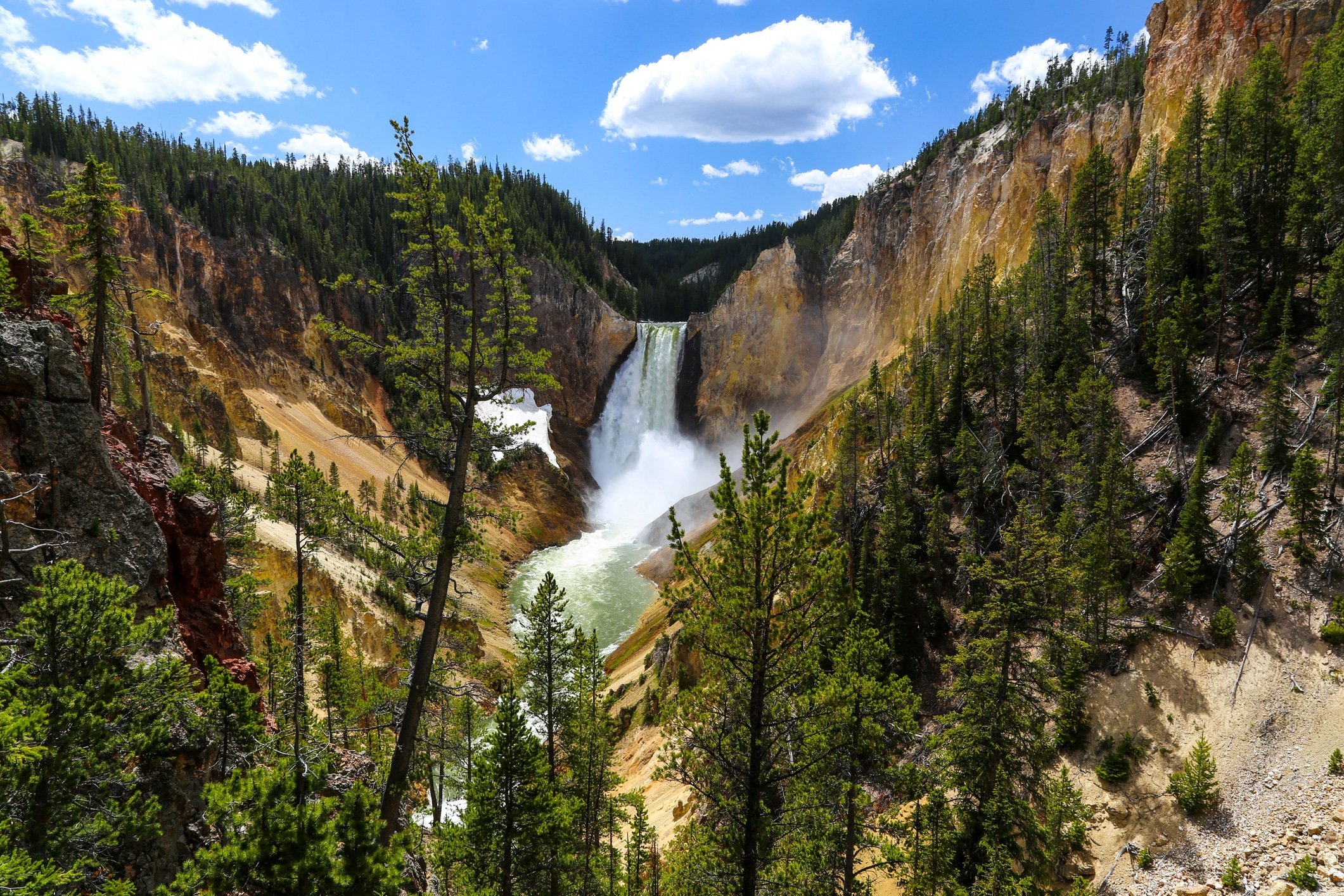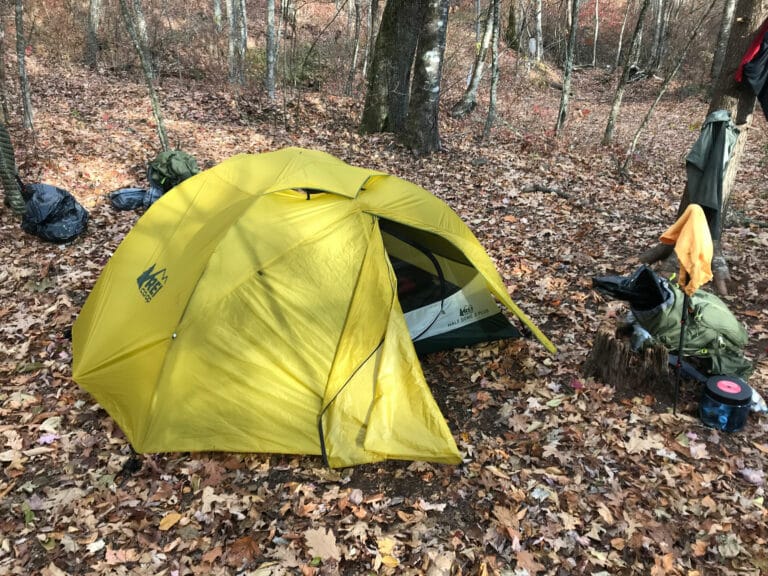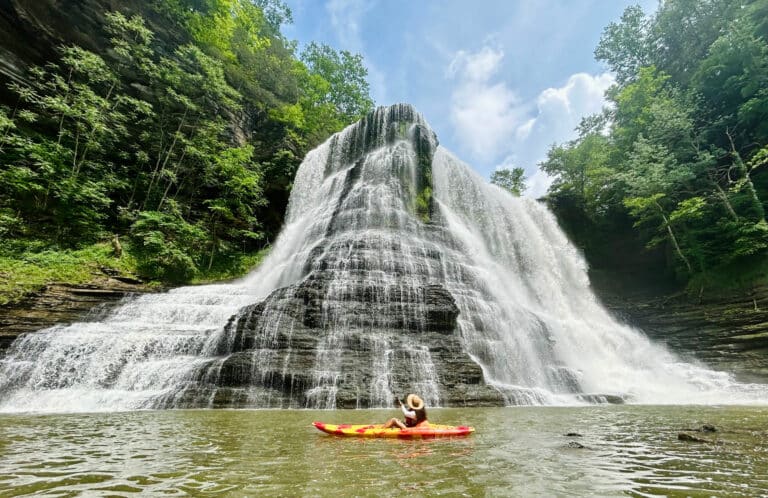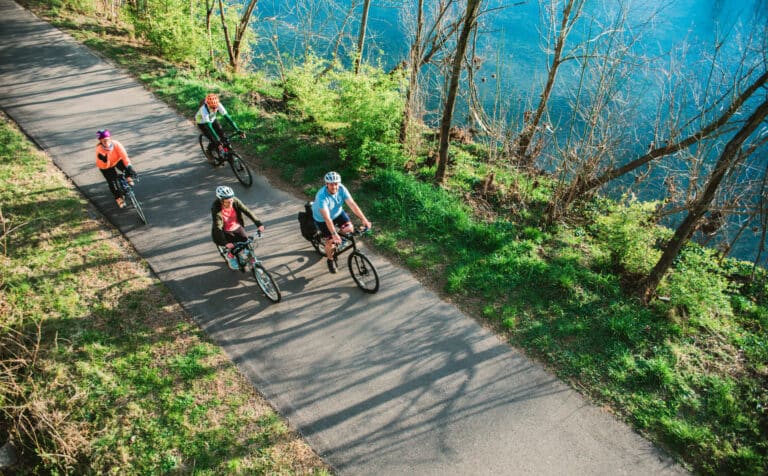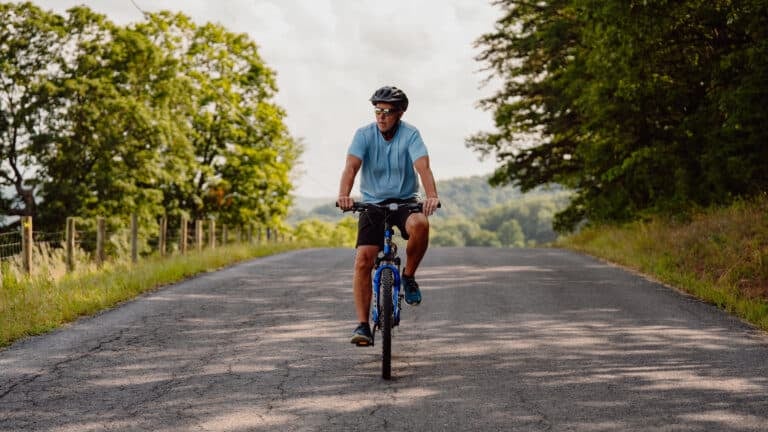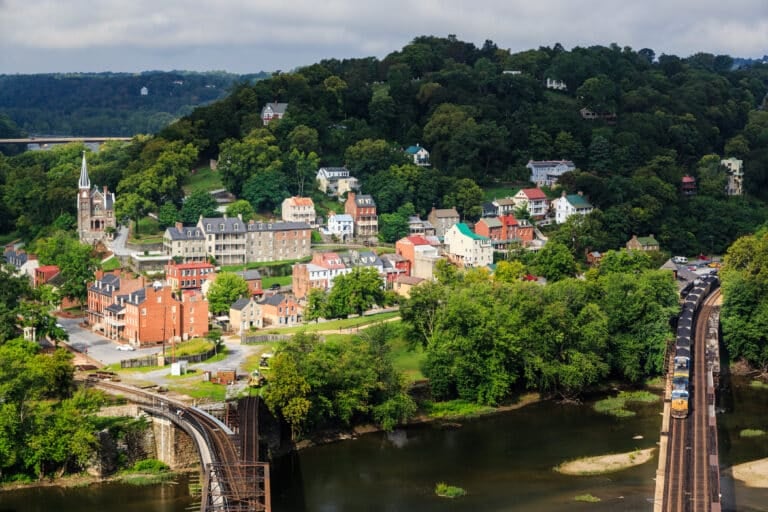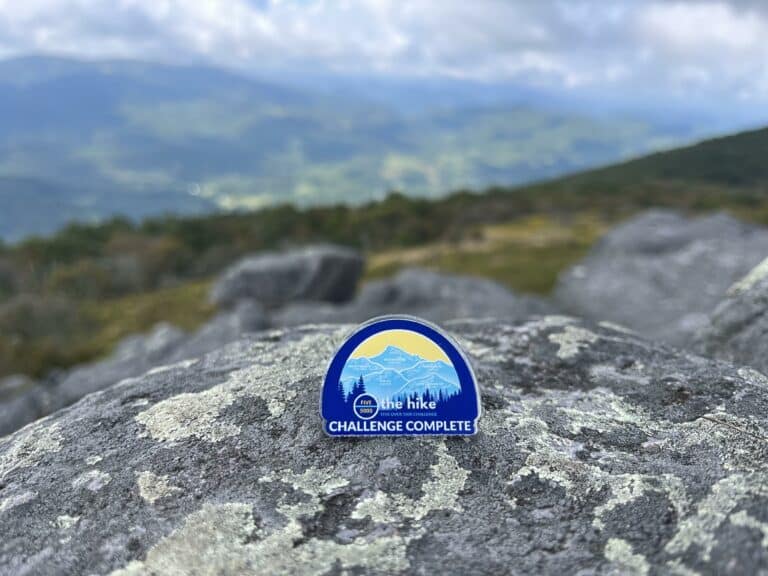Lower Falls, the biggest waterfall in Yellowstone, is the most famous in the Park at 308 feet and lies in the Grand Canyon of the Yellowstone – Photo from Getty Images
Nearly a dozen earthquakes in 24 hours shake Yellowstone National Park
Last Friday an area near Yellowstone National Park experienced 11 earthquakes—the strongest quake measuring at a magnitude of 3.1. In the past month, the area has been hit with an additional 34 quakes. Yellowstone is one of the most seismically active places in the continental U.S. and experiences between 700 and 3,000 earthquakes a year.
Why keep an eye on Yellowstone’s earthquakes? The park is home to a supervolcano that, if it should erupt, would bring with it the force of 1,000 Hiroshima atomic bombs. Though the supervolcano is not expected to erupt in our lifetime, when it does it will bring massive destruction to the U.S.
The way 2020 is going, would we even be surprised?
Celebrate National Trails Day this Saturday
This Saturday, June 6, is National Trails Day. On this national day of celebrating our trails, hikers are encouraged to harness the advocacy power of the millions-strong outdoor community to take action, while social distancing, to preserve trails and fight for equitable access for all to natural spaces.
Hikers are asked to take the #NationalTrailsDayPledge to preserve trails and advocate for equitable access to green space. Everyone who takes the pledge will be entered to win outdoor gear. Hikers are also encouraged to post a photo or video from one of your favorite trail adventures and tag #NationalTrailsDay and @AmericanHiking for a chance to win a gear prize package.
Throughout the week, American Hiking Society will also host interactive Facebook Live sessions on their Facebook Page.
Give to the Blue Ridge Parkway Foundation and your gift will be matched
The Blue Ridge Parkway Foundation has received a generous donation in the form of a $300,000 challenge grant. The grant is an “all or nothing” challenge, which means the foundation must raise $300,000 by Sept. 30, 2020, or forfeit the money completely. The National park Service is facing an astounding price tag to tackle repairs and care for trails, campgrounds, overlooks and more. Your gift will help.
Click here to donate to the foundation. Your gift will help to rehabilitate Parkway trails, restore iconic Parkway views, repair campgrounds and picnic areas, engage volunteers, and enhance signage and educational opportunities.
Boston Marathon is cancelled but will be held as a virtual event
Qualifying for—and running—the Boston Marathon is a major achievement in the running world. But runners that were planning to head to Beantown this year for the event will be lacing up their shoes a little closer to home instead. This year, for the first time in its 124-year history, the Boston Marathon is cancelled.
The Boston Athletic Association (BAA) announced last week that, due to COVID-19 restrictions, the marathon will not take place in 2020. Instead, the event will be held virtually and “will be complemented” by several other virtual events during the second week of September. Participants who were registered to run the initial April 20 date will be offered a full refund.
New podcast launched by Great Smoky Mountains Association
Do you love the Great Smoky Mountains? Then check out the new podcast series Smoky Mountain Air, by the Great Smoky Mountains Association. The podcast features interviews with authors, scientists and park experts, who each shed new light on life in the Smokies past and present.
“I believe that Smoky Mountain Air will give members and park supporters another great way to connect to GSMA, the region and Great Smoky Mountains National Park,” park archivist Mike Aday told onefeather.com. The podcast can be found on all podcast-hosting platforms.
Bald Eagle nesting remains strong in Georgia but declines in northern part of the state
New data out of Georgia shows that bald eagle nesting is strong in the state, though successful nests and young fledged in the northern part of Georgia declined this year compared to long-term averages. Heavy rainfall from January through March is likely to blame for the lower nest productivity, said Dr. Bob Sargent of the Georgia Department of Natural Resources.
Sargent estimates that the state likely had 200 or more eagle nests for the sixth straight year and says he isn’t concerned about the poor success rate for eagles in north Georgia. “Populations of many wildlife species exhibit fluctuations in reproductive success from year to year, sometimes wildly so, and these fluctuations are often related to bad timing of unusually cold or rainy spells,” he said.
